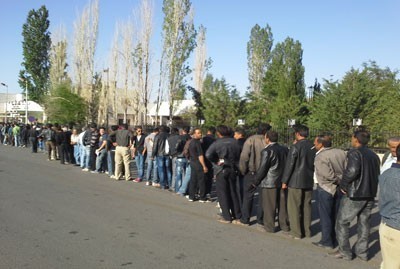Syrians stream to polling centers at borders, with new polling centers opened

Syrian citizens flocked to Jdeidet Yabous in Damascus Countryside and Homs countryside crossing points on the Syrian-Lebanese borders to cast their votes and choose a president for the homeland.
Syria’s Ambassador in Lebanon Ali Abdul Karim said that communications are underway with the Lebanese relevant sides to facilitate the entry of the citizens from Lebanon to the official Syrian border crossings for practicing their right to vote.
The Ambassador told SANA that big numbers of Syrian citizens have consulted the Embassy in Beirut since Monday before heading towards the border crossings.
20140603-143427.jpg
Eight more balloting centers have been added to the originally six in Jdeidet Yabous due to the high turnout, according to chairman of Damascus Countryside judicial sub-committee of elections Suleiman Karbaj.
Head of Jdeidet Yabous polling station Marwan Said clarified that the cross point center contains originally six polling centers and eighteen elections subcommittee members.
He added that the process started in presence of all subcommittee’s members since 7 am, pointing out that there have been hundreds of Syrians coming from Lebanon, as “500 voters have come since the first hour.”
20140603-143449.jpg
Syrians living in Lebanon also have been coming to the five polling centers on the Syrian-Lebanese borders in Homs countryside.
Governor of Homs, Talal al-Barazi, told SANA reporter that 4,000 Syrian citizens crossed the borders to take part in the presidential elections from the early hours of the morning.







